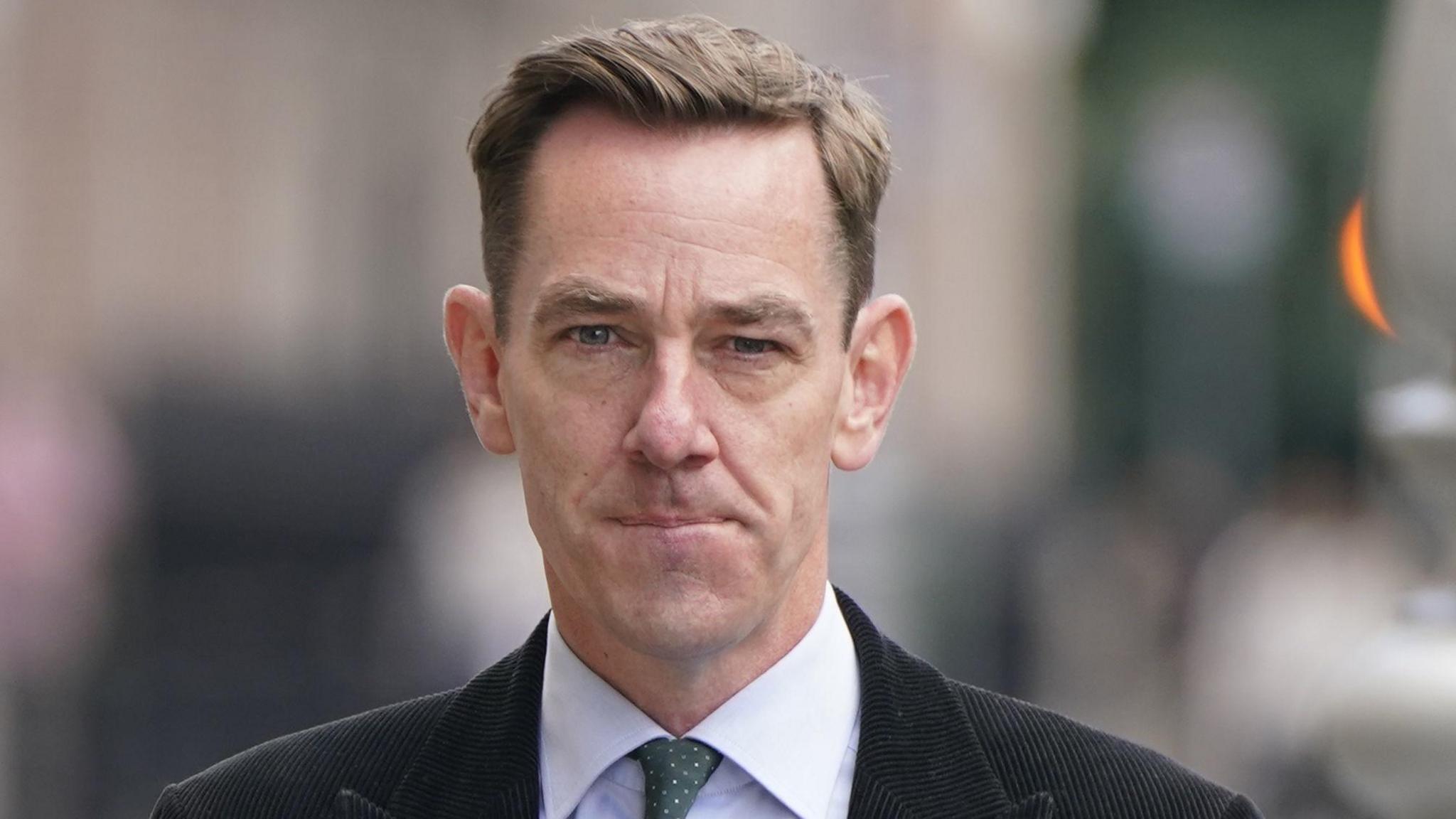RTÉ 'will be insolvent by spring' without funding
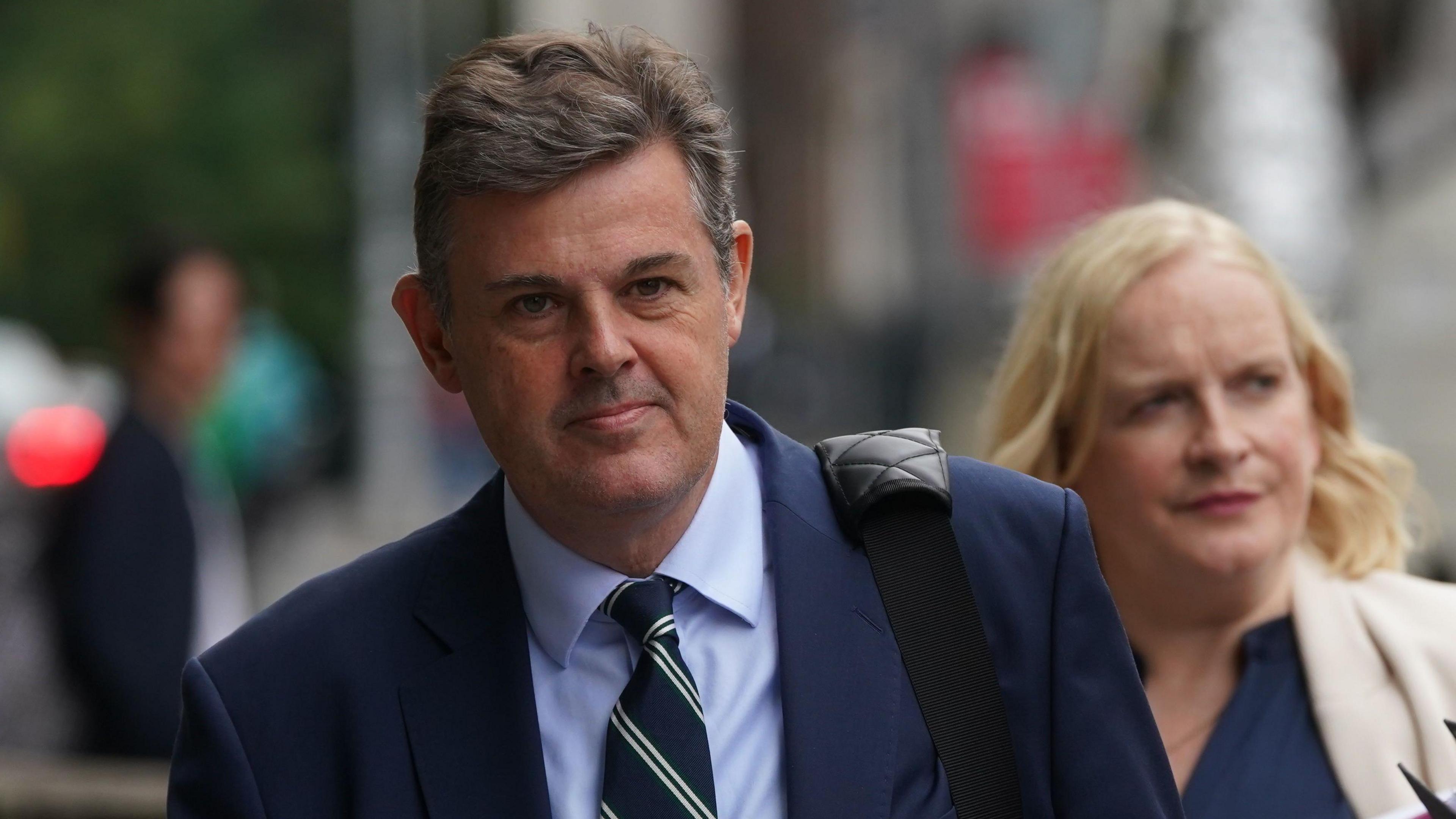
Kevin Bakhurst is the director general of Irish broadcaster RTÉ
At a glance
RTÉ will be insolvent by next spring without proper funding, its director general says
Kevin Bakhurst and other senior officials from the Irish broadcaster are appearing before an Irish government committee
Politicians continue to ask questions over RTÉ's spending
Mr Bakhurst says RTÉ is managing its cash "as carefully as we can"
- Published
Irish broadcaster RTÉ will be insolvent by next spring if it does not receive proper funding, its director general has said.
Kevin Bakhurst made the claim at a hearing of the Oireachtas (Irish parliament) Public Affairs Committee on Thursday.
He and other RTÉ officials are answering questions over a payments scandal that has plagued the public broadcaster since June.
Mr Bakhurst said the organisation was managing its cash "as carefully as we can" to prevent this.
Earlier this year, undisclosed payments of €345,000 (£296,800) made to star presenter Ryan Tubridy were made public.
In September, the director general said that the broadcaster was in a challenging financial situation but was not facing bankruptcy.
An immediate freeze on recruitment and the stopping of discretionary funding were announced as ways to restore public trust and confidence in RTÉ.
Mr Bakhurst told the committee on Thursday that these measures had saved several million euros, but RTÉ needed additional funding from the government to ensure its survival.
"If we didn’t get this cash, we would run out of cash, that’s for sure," he said.
RTÉ is funded using advertising revenue as well as a TV licence fee.
The broadcaster had previously asked the Irish government for €34.5m (£29.7m) in additional interim funding before the scandal broke.
'Significant' costs
On Thursday, the committee heard at the end of August, RTÉ had €68m (£58.7m) to hand.
It has also borrowed €65m (£56m) of its €100m (£86m) borrowing limit.
But since the payment scandal began, licence fee payments have been down €21m (£18.1m) in the year to date.
The organisation is also looking at a loss of up to €12m (£10.3m) this year.
Mr Bakhurst also said the complete sale of the broadcaster's campus in Donnybrook is unlikely and the repurposing of the current site will not be "without challenges and significant costs".
When asked about an advance payment made by RTÉ to Mr Tubridy for future personal appearances with a commercial partner, Mr Bakhurst said the organisation had not received the money back.
Mr Tubridy previously indicated he would return the €150,000 (£129,500) payment to the organisation if the events did not go ahead.
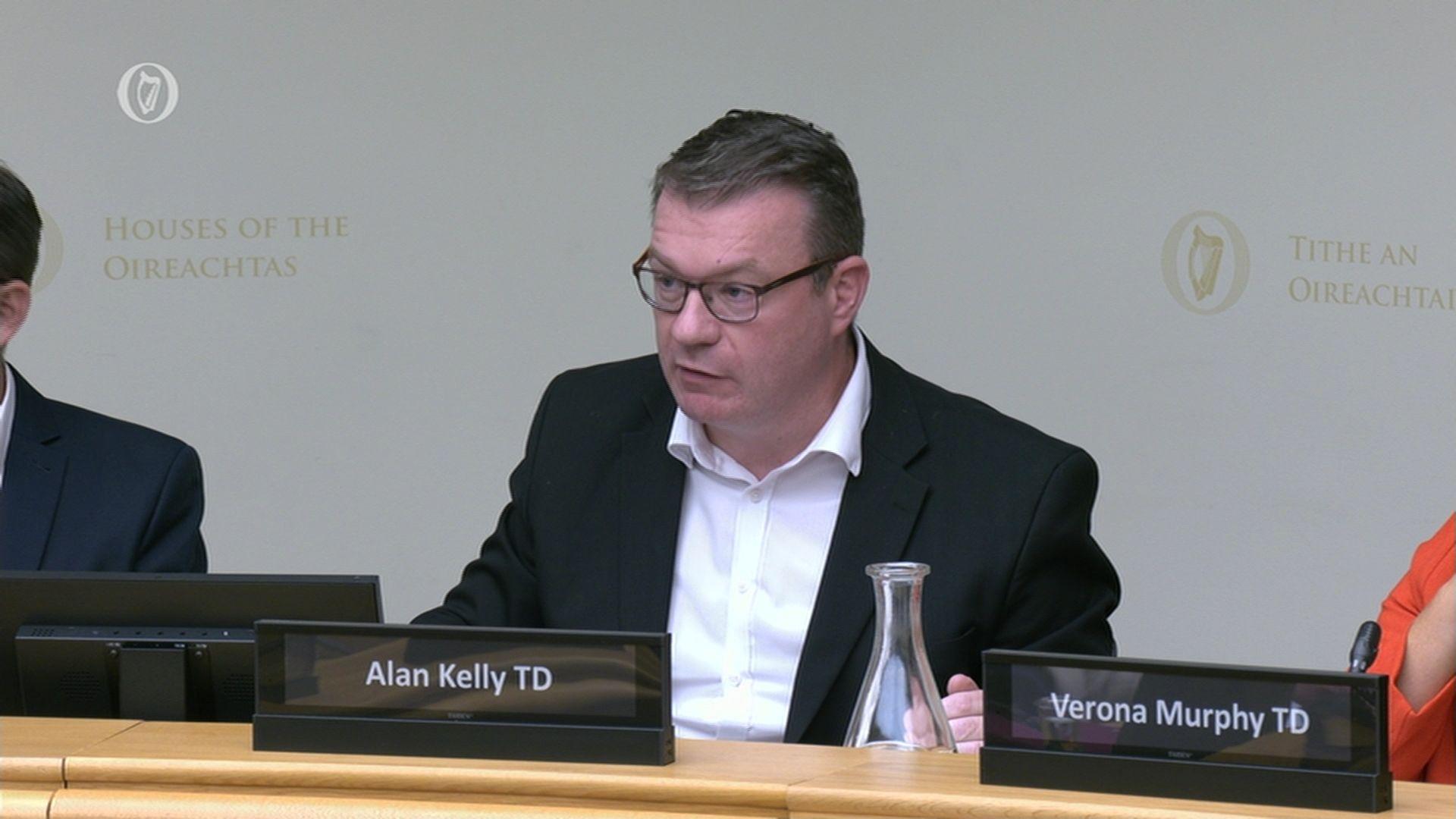
Alan Kelly said Mr Bakhurst's language at the hearing was "too confrontational"
There have also been frustrations aired about a written note taken during a May 2020 meeting between former director general Dee Forbes and Mr Tubridy’s agent, Noel Kelly.
Ms Forbes resigned from her role in June over the controversial payments.
RTÉ previously said it could not give the note to the committee due to legal privilege.
Labour TD (MP) Alan Kelly said the committee was prepared to compel the broadcaster to provide the document, adding that if the issue ends up in the courts, Mr Bakhurst’s position would “not be tenable”.
Earlier, Mr Bakhurst said the organisation stood ready for any attempt to compel the document by the committee.
But Mr Kelly described his language as “too confrontational”.
“This isn’t a two relationship,” the committee heard.
"It’s not a two-way relationship as regards you get to see our legal advice because you don't - this is the Oireachtas.”
Related topics
- Published13 September 2023
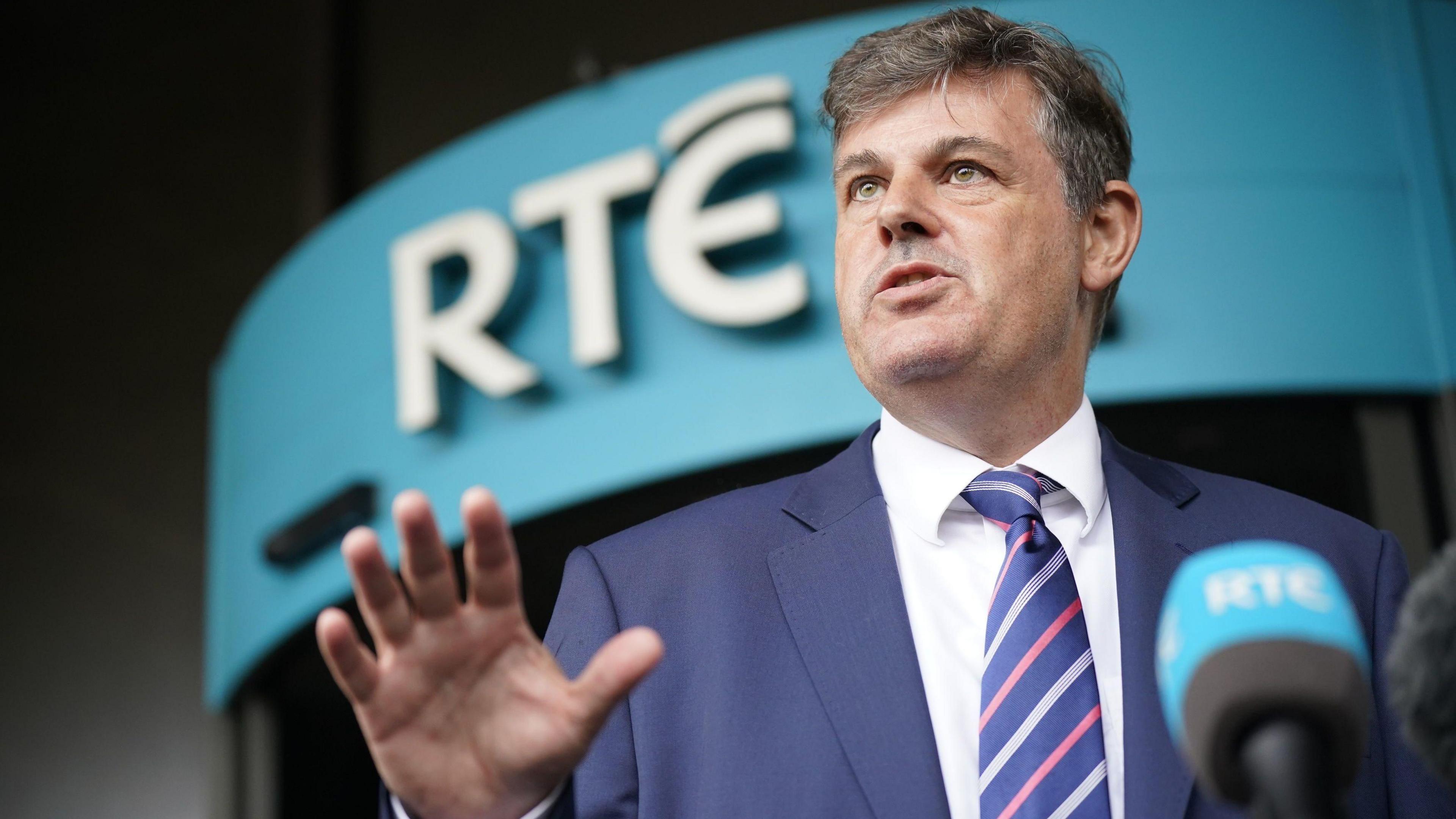
- Published22 June 2023
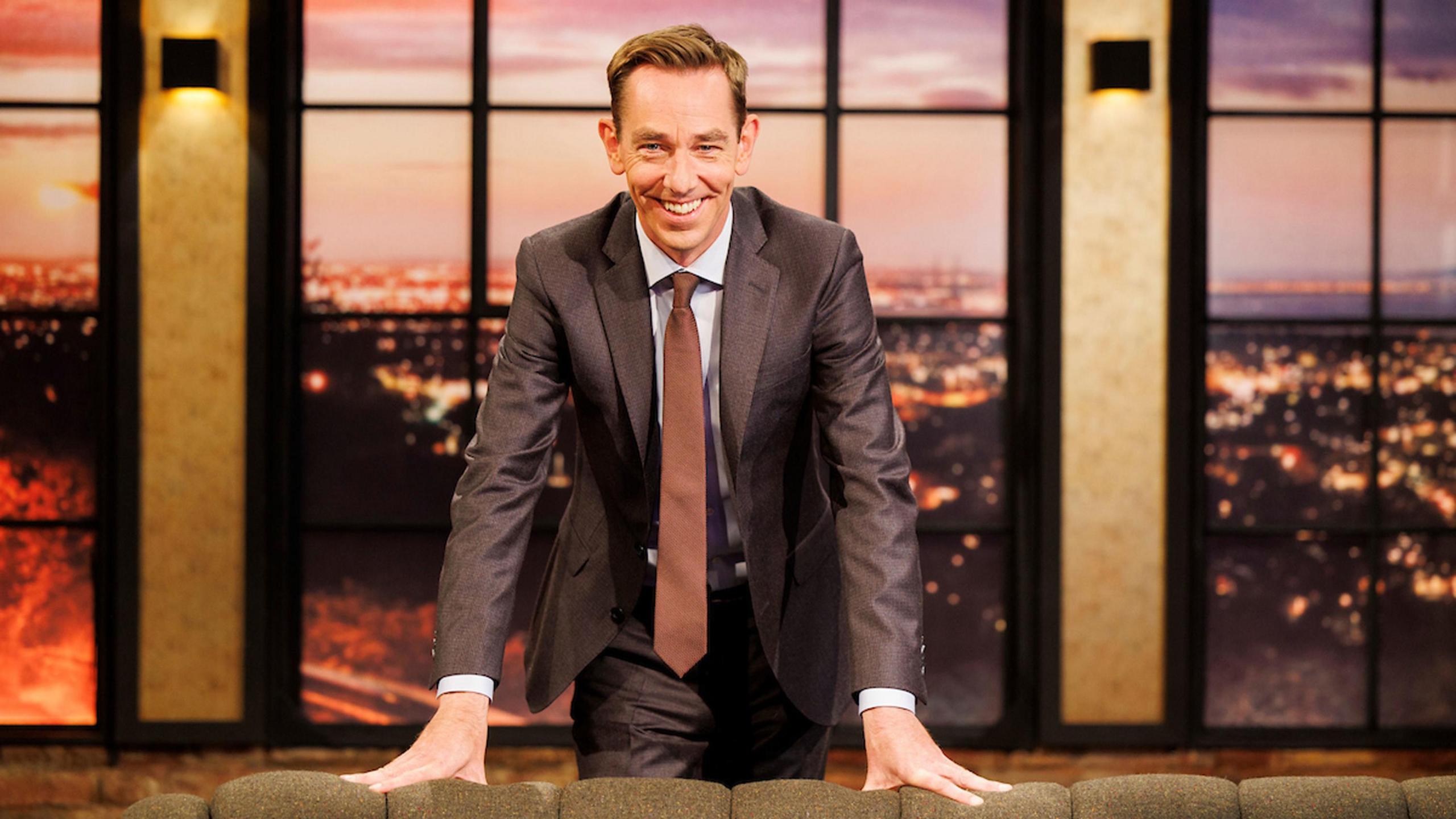
- Published11 July 2023
